Chinese scholar Mark Frazier examines China’s upcoming change in leadership and how politics is conducted in the world’s most populous country in the second installment of Lawrence University’s 2012 Povolny Lecture Series in International Studies.
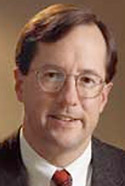
Frazier, co-director of the India China Institute at The New School in New York City, presents “Who is Xi? Knowns and Unknowns in China’s Political Future,” Tuesday, Oct. 23 at 7:30 p.m. in the Wriston Art Center auditorium. The event is free and open to the public.
Xi Jinping is expected to be named new party chief Nov. 8 at China’s 18th Party Congress. Much uncertainty, however, says Frazier, lies below the surface of this impending transition. He will discuss how the lack of information about Xi is symptomatic of larger problems on the horizon for how politics are conducted in China as well as for how China is perceived in the world.
Frazier spent six years as a member of the Lawrence government department before joining the University of Oklahoma in 2007 as the ConocoPhillips Professor of Chinese Politics and Associate Professor of International and Area Studies. Earlier this year, he was appointed to an endowed position in Chinese politics at The New School, where he also co-directs the India China Institute.
A scholar on the politics of labor and social policies in China, Frazier is the author of the books “Socialist Insecurity: Pensions and the Politics of Uneven Development in China” and “The Making of the Chinese Industrial Workplace.”
The Povolny Lecture Series, named in honor of long-time Lawrence government professor Mojmir Povolny, who passed away in August, promotes interest and discussion on issues of moral significance and ethical dimensions.
About Lawrence University
Founded in 1847, Lawrence University uniquely integrates a college of liberal arts and sciences with a world-class conservatory of music, both devoted exclusively to undergraduate education. It was selected for inclusion in the Fiske Guide to Colleges 2013 and the book “Colleges That Change Lives: 40 Schools That Will Change the Way You Think About College.” Individualized learning, the development of multiple interests and community engagement are central to the Lawrence experience. Lawrence draws its 1,450 students from nearly every state and more than 50 countries. Follow Lawrence on Facebook.
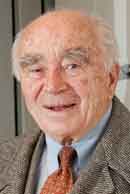
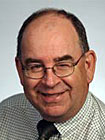
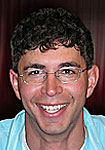
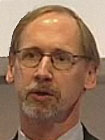
 Still active in foreign affairs, Greenwald is vice president of the Washington, D.C.-based International Crisis Group, the world’s leading conflict prevention non-governmental organization. He served as head of the U.S. Embassy’s (East) Berlin political section throughout the tumultuous period of the fall of the Wall and Germany’s reunification. He is the author of the 1993 book “Berlin Witness: An American Diplomat’s Chronicle of East Germany’s Revolution.”
Still active in foreign affairs, Greenwald is vice president of the Washington, D.C.-based International Crisis Group, the world’s leading conflict prevention non-governmental organization. He served as head of the U.S. Embassy’s (East) Berlin political section throughout the tumultuous period of the fall of the Wall and Germany’s reunification. He is the author of the 1993 book “Berlin Witness: An American Diplomat’s Chronicle of East Germany’s Revolution.”